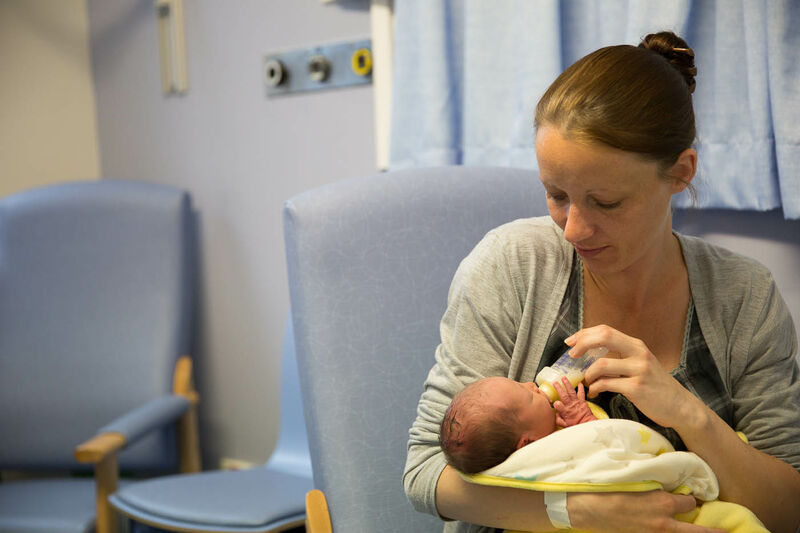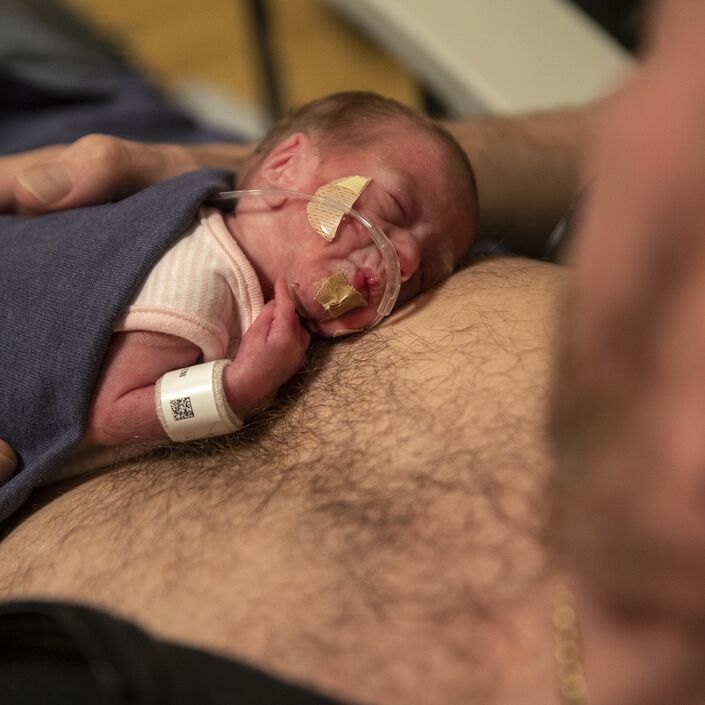Mild reflux usually improves on its own and gets better when your baby begins to wean onto solids. Treatment depends on the severity of the reflux. But there are ways you can help too. Here are some ways you can help your baby:
- Give your baby skin-to-skin after a feed, to allow the food to settle.
- For some babies it is helpful for them to be fed in different positions. You could try to feed your baby in a more upright position. Speak to staff on the neonatal unit if you have questions or need support with positioning your baby for feeding.
- Keep your baby’s head gently raised during the day, especially after a feed. Reflux is worse when a baby is lying flat on their back. Do not put anything directly under your baby’s head, and never use a pillow with a baby under 12 months old.
- Change your baby’s nappy before feeding.
- Feed your baby with smaller amounts of milk more often.
- Wind your baby more frequently. To wind, rub rather than tap your baby.
Your GP may also give you some medications to help. These may include feed thickeners, which are added to your baby’s milk to help reduce the effect of reflux. Thickeners work by making the food more solid once it is in the stomach and this makes it harder to bring back up.
Other medications may help to stop your baby’s stomach producing too much acid and speed up food passing through the stomach. Feed thickeners should only be used if they have been prescribed by a medical professional such as a GP.
Reflux usually gets better on its own, as babies’ muscles develop. If treatments and medications do not help, then your baby may need to be referred to a specialist. They will be able to tell you if your baby needs any further tests.


